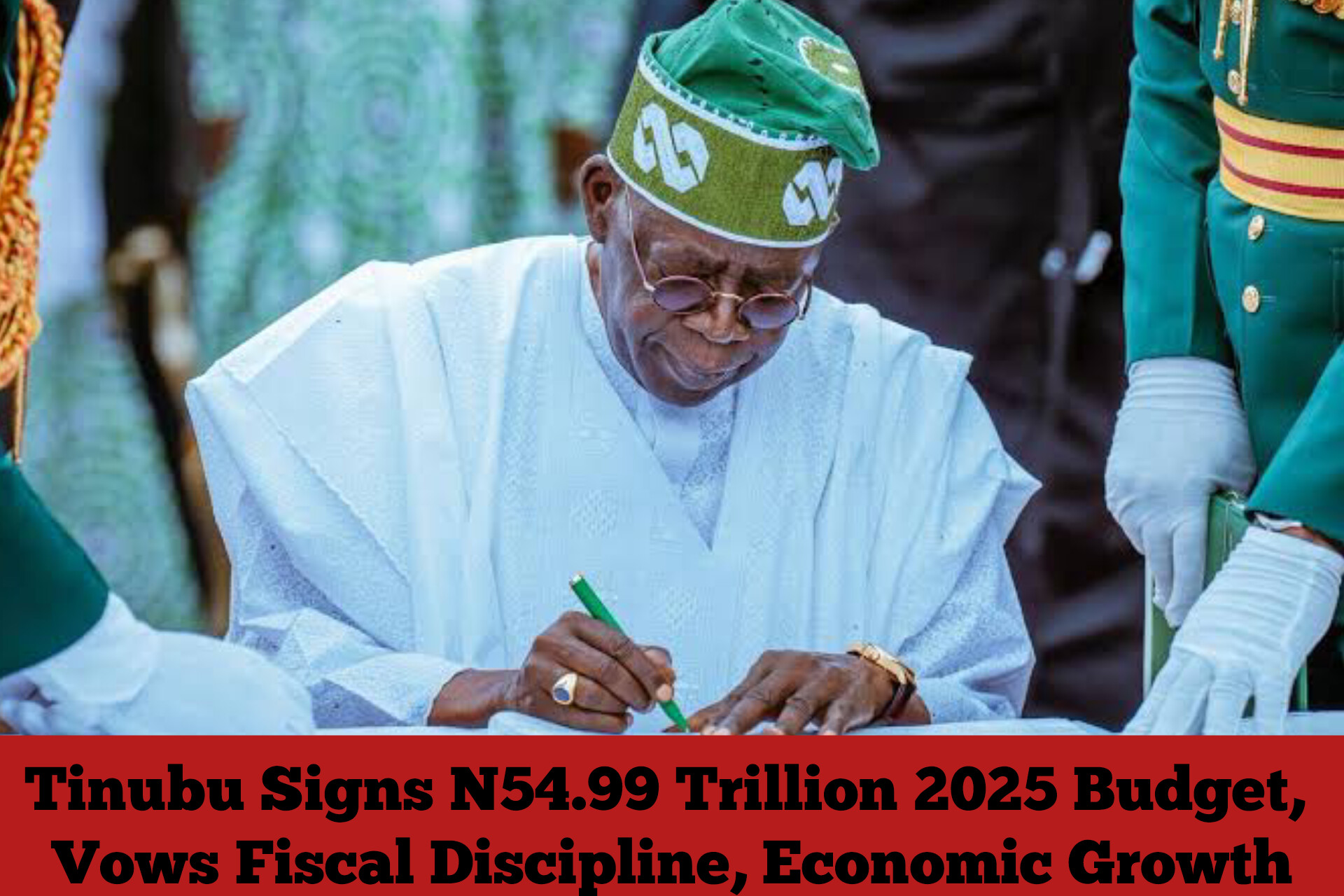President Bola Tinubu has reaffirmed his administration’s commitment to economic discipline, fiscal responsibility, and strategic reforms as he signed the N54.99 trillion 2025 Budget of Restoration into law.
Speaking at the signing ceremony, attended by Senate President Godswill Akpabio, House Speaker Tajudeen Abbas, and Senate Committee Chairman on Appropriation Senator Solomon Adeola, Tinubu emphasized that the budget was built on projected revenues and aimed at securing Nigeria’s economic future.
Economic Progress Amid Challenges
Reflecting on the past year, the President noted that despite initial economic turbulence, key reforms had begun yielding positive results. He highlighted Nigeria’s 3.86% GDP growth in Q4 2024, the fastest in three years, as a sign of progress.
“Revenue increased from N12.37 trillion to N21.6 trillion, demonstrating our drive for fiscal efficiency. Additionally, we have significantly reduced the deficit—from 6.2% in 2023 to 4.17% in 2025,” Tinubu stated.
He also pointed to forex reforms, which have restored investor confidence and stabilized markets, and the minimum wage increase to ₦70,000, which has boosted workers’ purchasing power.
Infrastructure and Social Welfare Priorities
The President outlined key projects and investments, including:
The 750km Lagos-Calabar Coastal Highway and the 1,068km Sokoto-Badagry Superhighway, aimed at enhancing national connectivity.
Increased allocations for agriculture and food security, ensuring no Nigerian goes hungry.
Expanded funding for education, healthcare, and social welfare programs, particularly for youth, women, and vulnerable populations.
“This budget is bold, ambitious, and necessary. However, we must spend within our means. We will not burden future generations with reckless borrowing but will instead expand revenues through efficiency reforms, public-private partnerships, and foreign investments,” Tinubu assured.
Accountability in Budget Implementation
To ensure efficient execution, Tinubu stressed that all government agencies would be held accountable for prudent spending and value-for-money initiatives. He also announced plans to work with the National Assembly to redefine corrigenda within the Appropriations Act, ensuring transparency in budget amendments.
“A budget is not just numbers—it is a promise, and we must honor it with discipline,” he declared.
National Assembly’s Support
Senate President Godswill Akpabio commended Tinubu’s leadership, describing the economy as one that required urgent intervention upon his assumption of office. He assured full legislative support for the budget’s implementation, praising the President’s ability to manage resources effectively.
Finance Minister Wale Edun emphasized that the budget’s passage was a result of collaboration, consultation, and analysis between the executive and legislative arms, ensuring a framework for sustainable growth.
With the 2025 Budget of Restoration now signed, all eyes are on its implementation as Nigeria navigates its path to economic stability and growth.




